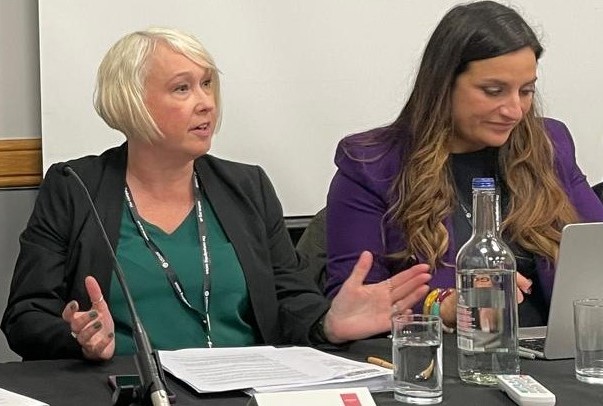We’re hopeful that plans outlined this week by the Government, to focus on mental health and expanding mental health services to meet rising need, is the right approach to help people who want to work, back into the workplace.
But we’re concerned that these plans will be difficult to achieve without a clearer plan to grow the counselling and therapy workforce, who are necessary to provide these services.
The plans, included in the Government’s Get Britain Working new white paper, include a range of measures to help better support the 2.8 million people unable to work due to long-term sickness. And the one in eight of our young people who aren’t in education, employment or training.
Talking Therapies expansion
Plans from the white paper include:
- Addressing key public health issues that contribute to worklessness, including an expansion of NHS Talking Therapies.
- Expanding access to expert employment advisers as part of treatment and care pathways, in particular within mental health and musculoskeletal services.
- Expanding Individual Placement and Support (IPS) for severe mental illness to an additional 140,000 people by 2028/29.
- Connect to Work, a new supported employment programme, will support up to 100,000 people a year at full rollout, as the first tranche of money from a new Get Britain Working Fund.
- Delivering a Youth Guarantee so that all 18 to 21-year-olds in England have access to education, training or help to find a job or an apprenticeship.
Demands on workforce capacity
Matt Smith-Lilley, BACP Policy and Engagement Lead for Mental Health, said; “We welcome expanding services for people with mental ill health within the white paper. However, increasingly the trend has been rising demand for NHS Talking Therapies services outstripping increases in service capacity.
“We’re worried there’s a risk that the plans will exacerbate this gap, between capacity and demand, unless a clear plan for workforce growth is set out as well.
“The government also needs to recognise that a range of psychological therapies, including counselling, psychotherapy and CBT, are all equally effective. But the most important factor is giving people an informed choice over the type of intervention they receive – research consistently shows that this leads to the best outcome.
“Over 70% of our members would like to work in the NHS and say they have capacity to take on an additional 1 day a week’s NHS work.
“However, too often counsellors and psychotherapists are overlooked and undervalued in discussions around workforce expansion. We urge the government to meet with us to see how we could help and support their plans.”
Strike a balance with business
Kris Ambler, BACP Workforce Lead, said: “We welcome this independent review, yet some employers may feel as though they are already over-burdened in an increasingly difficult climate.
“There’s lots of evidence pointing to the return of investment (ROI) of employee health and wellbeing. For every £10,000 invested in mental health initiatives, for example, the average return is £50,000.
“Investing in workplace counselling, provided through an employee assistance programme (EAP) or privately, can reduce sickness absence rates by up to 50% and help people return to work better prepared and more resilient.
“UK employers have taken great strides forward in recent years, helping raise awareness and normalise conversations around health and wellbeing at work. Many employers offer a range of benefits to help support people in work, including access to counselling, flexible work patterns and health screening. However, none of these are substitutes for ‘good work’, where employees feel secure, valued and fairly rewarded.
“Any review must strike a balance that recognises the significant pressures UK businesses are facing whilst providing them with incentives to invest in the health, wellbeing and inclusivity of their workforces”.
Meaningful work is a priority
As the next steps to implement and effectively deliver the proposals emerge, we’ll work with the government to ensure counselling and psychotherapy are part of the workforce expansion planned, to help deliver much needed service expansion.
We believe that no one should feel they need to choose between their health, work and benefits, and that a focus on securing meaningful work for people is a priority over work at any cost.

Vital third sector counselling services need reset of funding relationships
New report highlights flexibility of community-based counselling services and the growing demand pressures they face

Chancellor’s Autumn Statement is a good start for improving the mental health of the nation
We welcome the Budget’s much needed investment in public services but we're concerned about the impact on third sector organisations

Government must take bold and decisive action on children and young people’s mental health
We held a fringe event on children and young people's mental health at the Labour Party conference
